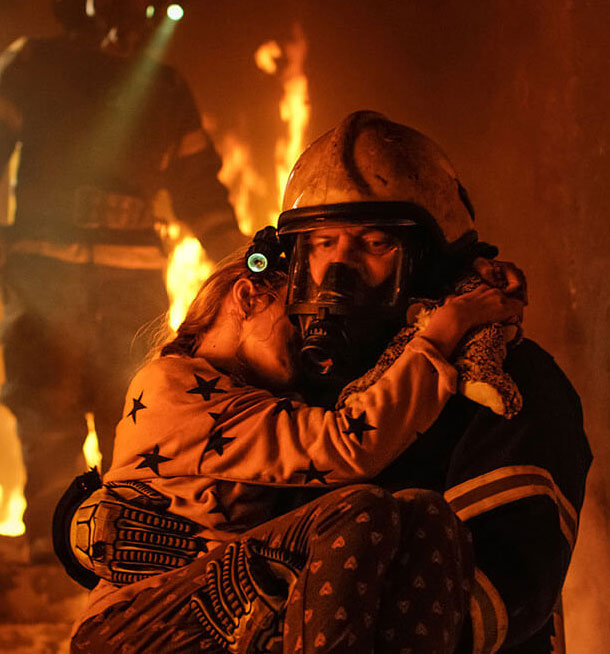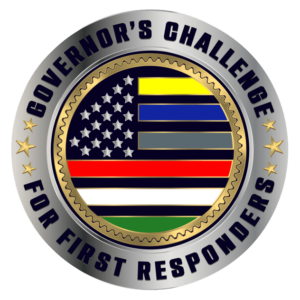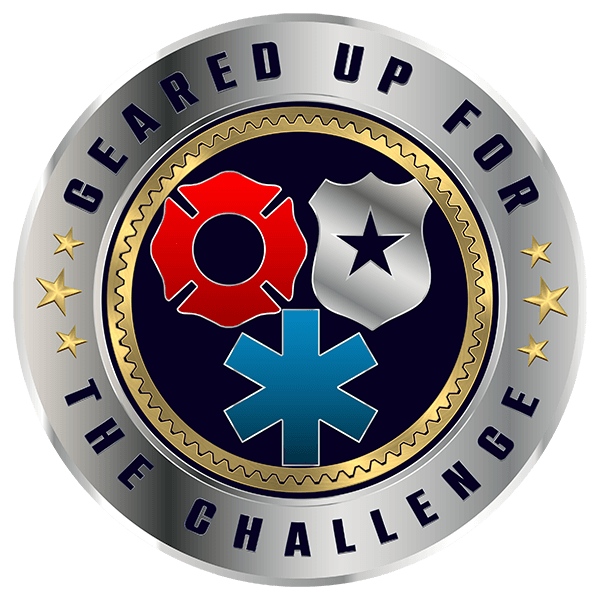Have you heard people say they are frustrated with Public Safety? They feel like law-enforcement is jaded, complacent, or brash when dealing with the public?
Or have you been positively impacted by a first responder showing up for your emergency? Has someone led you to feel safe? Has someone helped you or one of your family members in a time of crisis? Has a team of people that you never met risked their lives for you or your family?
Either way, rather than talking about change and frustrations, be a part of affecting positive change! We all get caught in times of judgment and armchair quarterbacking when we feel the need is too great and the world is overwhelming. However, rather than coaching from the couch, we invite you to stand up for what is right and shift the culture. Make change!
It all starts with shifting the stigma about mental health for first responders. It is easy to take on the attitude of, “Well they signed up for it, that’s their job.”
It is impossible to foreshadow the effects the “job” will have. No one is prepared for what they will see and cannot unsee, Even though first responders are trained in the academy to deal with traumatic events. It is quite a different thing to be exposed first-hand to human suffering or mistreatment, and to carry the burden of children and families whom they could not save. No one is an invincible Superman or Wonder Woman. It is critical that first responders receive occupationally relevant mental health training – not only in the academy, but throughout their entire career – so that they can process and cope with all the trauma they experience on the job. This is absolutely essential for job performance and for optimal brain health and psychological wellbeing.
During the height of the pandemic, the number of people in the U.S. seeking mental health services steadily increased – and those numbers continue to go up. Yet many people forget that our first responders were on the front-lines during the entire length of the pandemic – directly exposed to all of the illness, death, crises, and violent protests – with very little time off, and no ability to work from home, or to comfort and protect their families. Instead, they had to keep going out into the world to help others.
“They have to deny their basic needs in the service of us, the public.”
It was recently published that, “some fire departments have failed to fight PTSD, heavy workloads, have an unyielding policy of 21-day shifts, forced overtime and insufficient staffing. These firefighters battle fires year-round, sometimes for 40 days in a row. Each of these factors are major contributors to on-the-job injuries and post-traumatic stress disorder.
Imagine just one day of their shift could be 13-18 lengthy calls over 24 hours. They have to deny their basic needs in the service of us, the public. This means that they need to suit up and put their best game face on, even if they are dealing with a sick child at home, struggling with marital issues, dealing with loss of a co-worker or suffering with injuries that threaten their well-being and livelihood. It means not eating when hungry, holding it when having to go to the bathroom, not having time for self care during a day when needing a break or exercise to decompress, not finishing an important discussion with their spouse or kids, missing a child’s recital or first steps, and not being able to sleep when in desperate need of it.
Studies show that a single night of sleep deprivation interferes with our ability to perceive emotions in others and compromises our ability to empathize. Longer periods of sleep deprivation reduce measures of emotional intelligence and interpersonal functioning. Yet, many fire departments that are understaffed are requiring firefighters to work 120 hours straight or more and Law Enforcement Agencies are having officers work a double shift or stay hours past the end of their shift. According to the Accreditation Council for Graduate Medical Education (ACGME), In the United States Medical Residents are not allowed to work more than 80 hours in a week because sleep deprivation affects safety and care.
“Many don’t even make it to see their retirement. The most often cause of death in responders is heart problems, cancer or suicide.”
The COVID pandemic shut down hiring, training, and promotions. Ultimately, the pause in hiring led to mass forced overtime. Add to that the uneasy political climate, attrition, attitude towards first responders, higher call volume, illness, injuries, and the regular stresses of life; soon enough there was a lack of desire to do the job.
To follow, a national shortage of police officers, firefighters, paramedics, dispatchers, and even administrative staff occurred. Many responders who were able to retire, left in droves to avoid dealing with constant COVID exposure, violent protests, and endless forced overtime. Even now, many departments are completely depleted of resources. For example, in 2022, the Seattle Police Department is still down nearly 500 officers.
Unfortunately, government officials are not always in agreement in making first responder wellness a top fiscal priority, resulting in limited funding for critical services for first responders, such as:
- Proactive mental wellness education Mental performance training
- First responder-specific treatment and counseling
- Family survival support and education,
- Critical incident stress debriefing mechanisms.
You may think that first responders are well-paid and have a great retirement; however, many don’t even make it to see their retirement. The most often cause of death in responders is heart problems, cancer or suicide. We are losing great people, far too often and too young. Most responders pass before 67 years old. They don’t get to enjoy their retirement years with the people they love. The job is one of service and personal sacrifice!
On a positive note, an increasing number of public safety departments are recognizing the needs of their people. High turnover rates have left many departments desperate for the resources to retain their first responders and keep them healthy. But these services are not free, and there may be no budget to pay for them.
If you asked a first responder if they love what they do, and if their goal is to serve others, you will hear a resounding “yes.” Still, the job comes at the cost of major effects on their health, their emotional wellbeing, and their family relationships.
But we can temper the blow and help them have a soft place to land. We need to get involved through financial support, to make sure they have the services they need to stay strong physically, mentally and emotionally.
So my wish for 2023 is that this letter serves as a call to action to support our first responders in any way you can. Get involved to write legislators about funding necessary for mental health care and education. Donate to a vetted first responder non-profit organization that covers the cost of mental health and wellness programs. At a minimum show your appreciation and support with a genuine thank you and wave.
Wishing you a Happy New Year! Thank you for reading, caring and giving.





